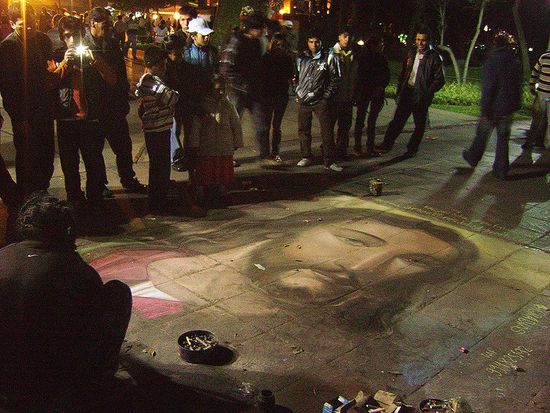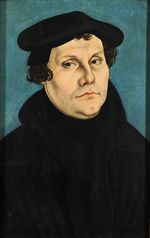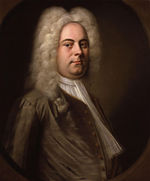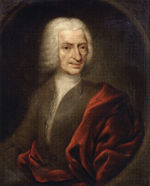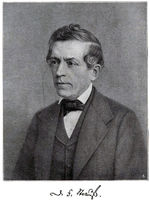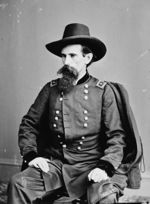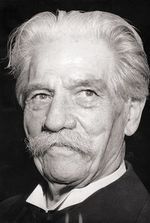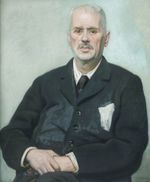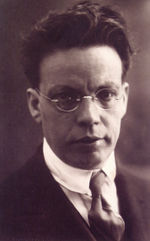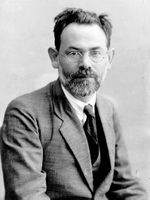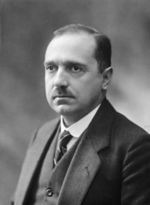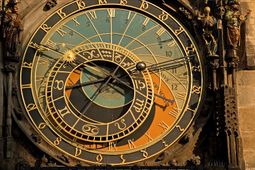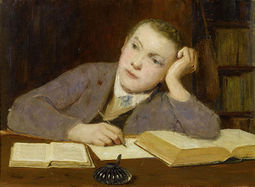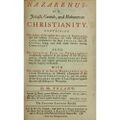Difference between revisions of "Category:Historical Jesus Studies"
| Line 32: | Line 32: | ||
[[File:Rudolf Bultmann.jpg|thumb|150px|[[Rudolf Bultmann]]]] | [[File:Rudolf Bultmann.jpg|thumb|150px|[[Rudolf Bultmann]]]] | ||
*[[1400s]]-[[1500s]] -> [[JeS 1400s]] & [[JeS 1500s]] | |||
The earliest Lives of Jesus of the Renaissance were theological or poetical harmonies of the four Gospels, authored by humanists like [[Antonio Cornazzano]] and [[Pietro Aretino]]. A more critical approach emerged with the Reformation. [[Martin Luther]] discussed the Jewishness of Jesus and by the end of the 16th century the work of [[Bartolomeo Dionigi]] located the life of Jesus within Jewish history. | |||
*[[1600s]] -> [[JeS 1600s]] | |||
At the beginning of the 17th century the tale of the "Wandering Jew" spread into Europe. The anti-Semitic implications of the myth of the impious Jew cursed by Jesus and condemned to wander until the end of time would greatly affect even the scholarly and fictional narratives of the life of Jesus based on canonical sources. | |||
The most popular ''Lives of Jesus'' of the century were those authored by French Jesuit [[Bernardin de Montereul]] and [[Nicola Avancini]], in 1637 and 1666 respectively. They were harmonies of the four gospels. | |||
Fictional works were popular representations of the events surrounding the birth and passion of Christ. | |||
*[[1700s]] -> [[JeS 1700s]] | |||
Jesus remained an important subject in the arts, as attested especially by the production of numerous oratorios, including Bach's Matthäuspassion, Haendel's Messiah, and the many based on Metastasio's libretto, The Passion of Jesus Christ. In 1768 Scottish preacher [[John Cameron]] published what is regarded as the first modern novel on Jesus | |||
The Enlightenment brought about a more rationalistic approach to scriptures. The historical investigation of the origins of Christianity began with the British deists ([[John Locke]], [[John Toland]], [[Thomas Chubb]], [[Thomas Morgan]], [[Thomas Woolston]], [[Peter Annet]]). By the end of the century the idea emerged that the gospels might not have told the "true" story of Jesus. Maybe Jesus was a Jewish religious leader ([[Voltaire]]) or a political revolutionary, whose failure prompted his reinterpretation as a religious figure ([[Hermann Samuel Reimarus]]), or maybe Jesus did not even exist and his biography was a completely mythological construct ([[Constantin-François Volney]]). | |||
The unpublished work of [[Georg Wilhelm Friedrich Hegel]] in 1795 shows how in light of Emanuel Kant's thought Jesus had become to be interpreted in German philosophical circles as a teacher of a morality founded on reason. | |||
*[[1800s]] -> [[JeS 1800s]] | |||
At the beginning of the 19th century the first critical approaches to the Life of Jesus were characterized by the attempt either to "eliminate" the supernatural elements in the Gospel narratives (Jefferson) or to "explain" them in rationalistic terms (Paulus). The breakthrough came with the work of [[David Friedrich Strauss]] (1835) who showed that the Gospel narratives ought not to be taken as "objective" reports but as "mythological" retelling of historical events. Strauss defined what would become the "scholarly" approach; the success of his work marked the beginning of contemporary research on the Historical Jesus. The Emancipation of the Jews in Western Europe led to the emergence of Jewish scholarship and [[Joseph Salvador]] was in 1838 the first Jewish scholar to deal with the historical Jesus. | |||
*[[1800s]] -> [[JeS 1800s]] | |||
Revision as of 05:40, 21 August 2015
|
HJS 1500s -- History of research -- Overview The earliest Lives of Jesus of the Renaissance were theological or poetical harmonies of the four Gospels, authored by humanists like Antonio Cornazzano and Pietro Aretino. A more critical approach emerged with the Reformation. Martin Luther discussed the Jewishness of Jesus and by the end of the 16th century the work of Bartolomeo Dionigi located the life of Jesus within Jewish history. At the beginning of the 17th century the tale of the "Wandering Jew" spread into Europe. The anti-Semitic implications of the myth of the impious Jew cursed by Jesus and condemned to wander until the end of time would greatly affect even the scholarly and fictional narratives of the life of Jesus based on canonical sources. The most popular Lives of Jesus of the century were those authored by French Jesuit Bernardin de Montereul and Nicola Avancini, in 1637 and 1666 respectively. They were harmonies of the four gospels. Fictional works were popular representations of the events surrounding the birth and passion of Christ. Jesus remained an important subject in the arts, as attested especially by the production of numerous oratorios, including Bach's Matthäuspassion, Haendel's Messiah, and the many based on Metastasio's libretto, The Passion of Jesus Christ. In 1768 Scottish preacher John Cameron published what is regarded as the first modern novel on Jesus The Enlightenment brought about a more rationalistic approach to scriptures. The historical investigation of the origins of Christianity began with the British deists (John Locke, John Toland, Thomas Chubb, Thomas Morgan, Thomas Woolston, Peter Annet). By the end of the century the idea emerged that the gospels might not have told the "true" story of Jesus. Maybe Jesus was a Jewish religious leader (Voltaire) or a political revolutionary, whose failure prompted his reinterpretation as a religious figure (Hermann Samuel Reimarus), or maybe Jesus did not even exist and his biography was a completely mythological construct (Constantin-François Volney). The unpublished work of Georg Wilhelm Friedrich Hegel in 1795 shows how in light of Emanuel Kant's thought Jesus had become to be interpreted in German philosophical circles as a teacher of a morality founded on reason. At the beginning of the 19th century the first critical approaches to the Life of Jesus were characterized by the attempt either to "eliminate" the supernatural elements in the Gospel narratives (Jefferson) or to "explain" them in rationalistic terms (Paulus). The breakthrough came with the work of David Friedrich Strauss (1835) who showed that the Gospel narratives ought not to be taken as "objective" reports but as "mythological" retelling of historical events. Strauss defined what would become the "scholarly" approach; the success of his work marked the beginning of contemporary research on the Historical Jesus. The Emancipation of the Jews in Western Europe led to the emergence of Jewish scholarship and Joseph Salvador was in 1838 the first Jewish scholar to deal with the historical Jesus.
|
Texts
Life of Jesus
People
Categories
Cognate Fields
|
Pages in category "Historical Jesus Studies"
The following 181 pages are in this category, out of 181 total.
- Historical Jesus Studies (1450s)
- Historical Jesus Studies (1500s)
- Historical Jesus Studies (1600s)
- Historical Jesus Studies (1700s)
- Historical Jesus Studies (1800s)
- Historical Jesus Studies (1850s)
- Historical Jesus Studies (1900s)
- Historical Jesus Studies (1910s)
- Historical Jesus Studies (1920s)
- Historical Jesus Studies (1930s)
- Historical Jesus Studies (1940s)
- Historical Jesus Studies (1950s)
- Historical Jesus Studies (1960s)
- Historical Jesus Studies (1970s)
- Historical Jesus Studies (1980s)
- Historical Jesus Studies (1990s)
- Historical Jesus Studies (2000s)
- Historical Jesus Studies (2010s)
- Historical Jesus Studies (2020s)
*
~
- Ludolph of Saxony (M / Germany, c.1295-1378), scholar
- Antonio Cornazzano (M / Italy, 1430c-1484), poet
- Martin Luther (M / Germany, 1483-1546), scholar
- Pietro Aretino (M / Italy, 1492-1556), novelist
- Bartolomeo Dionigi (M / Italy, 1544-1613), scholar
- Bernardin de Montereul (1596-1646), scholar
- Nicola Avancini (M / Italy, 1611-1686), scholar
- Pjetër Bogdani (1630–1689), Albanian scholar
- Sophia Elisabet Brenner (F / Sweden, 1659-1730), poet
- Thomas Woolston (1668-1733), scholar
- Peter Annet (1693-1769), scholar
- John Cameron (M / Britain, 1724-1799), novelist
- Friedrich Gottlieb Klopstock (M / Germany, 1724-1803), poet
- Francesco Pertusati (M / Italy, 1741-1823), translator
- Charles François Dupuis (1742-1809), scholar
- Constantin-François Volney (1757-1820), scholar
- Antonio Cesari (M / Italy, 1760-1828), scholar
- Georg Wilhelm Friedrich Hegel (1770-1831), scholar
- Ferdinand Christian Baur (1792-1860), scholar
- Aurelio Bianchi-Giovini (M / Italy, 1799-1862), scholar
- Émile Littré (M / France, 1801-1881), translator
- Giuseppe Lorini (M / Italy, 1801-1854), scholar
- Joseph Holt Ingraham (1809-1860), novelist
- Kersey Graves (1813-1883), nonfiction writer
- Filippo De Boni (M / Italy, 1816-1870), translator
- Vito Fornari (M / Italy, 1821-1900), scholar
- Luigi Arosio (M / Italy, 1822-1901), scholar
- Ernest Renan (M / France, 1823-1892), scholar
- Lew Wallace (M / United States, 1827-1905), novelist
- Gerald Massey (1828-1907), nonfiction writer
- Giovanni Bovio (M / Italy, 1837-1903), playwright
- Constant Fouard (1837-1903), scholar
- Louis Jacolliot (1837-1890), nonfiction writer
- Émile Le Camus (1839-1906), scholar
- Georg Brandes (M / Denmark, 1842-1927), nonfiction writer
- Edwin Johnson (1842-1901), scholar
- James Stalker (M / Britain, 1848-1927), scholar
- Theodor J. Plange, nonfiction writer
- Marcello Caraccio (M / Italy, 1851-1928), scholar
- George Moore (1852-1933), novelist & playwright
- Thomas Alexander Lacey (1853-1931), author
- George Holley Gilbert (1854-1930), scholar
- Giuseppe Ballerini (1857-1933), scholar
- Ferdinand Prat (1857-1938), scholar
- Claude G. Montefiore (1858-1938), scholar
- Mangasar M. Mangasarian (1859-1943), nonfiction writer
- William Wrede (1859-1906), scholar
- Giovanni Rosadi (1862-1925), nonfiction writer
- Andrzej Niemojewski (1864-1921), scholar
- Arthur Drews (1865-1935), scholar
- Luigi Gramatica (M / Italy, 1865-1935), translator
- Emilio Bossi (1870-1920), nonfiction writer
- Edgar J. Goodspeed (1871-1962), scholar
- Giacomo Mezzacasa (1871-1955), scholar
- Shirley Jackson Case (1872-1947), scholar
- Edmond A. Fleg (M / France, 1874-1963), novelist
- Joseph Klausner (M / Lithuania, Palestine, 1874-1958), scholar
- Albert Schweitzer (1875-1965), scholar
- Aladár Zubriczky (1872-1926), scholar
- Harry Emerson Fosdick (1878-1969), scholar
- Paul P. Levertoff (1878-1954), scholar & translator
- Sholem Asch (1880-1957), novelist
- Enrique García-Velloso (M / Argentina, 1880-1938), playwright
- Olive May Winchester (F / United States, 1880-1947), scholar
- Ernesto Buonaiuti (M / Italy, 1881-1946), scholar
- Herbert Cutner (1881-1969), nonfiction writer
- Giovanni Papini (M / Italy, 1881-1956), novelist
- Renato Souvarine (1881-1958), nonfiction writer
- Henry Joel Cadbury (1883-1974), scholar
- Kahlil Gibran (1883-1931), poet
- Abraham Mitrie Rihbany (1869-1944), scholar
- Rudolf Karl Bultmann (1884-1976), scholar
- Charles Harold Dodd (1884-1973), scholar
- François Mauriac (M / France, 1885-1970), novelist
- Bruce Barton (1886-1967), nonfiction writer
- Luigi Salvatorelli (1886-1974), scholar
- Mary Redington Ely Lyman (1887-1975), scholar
- Millar Burrows (1889-1980), American scholar
- Giuseppe Ricciotti (M / Italy, 1890-1964), scholar
- Karl Ludwig Schmidt (1891-1956), scholar
- Solomon Zeitlin (M / United States, 1892-1976), scholar
- Dorothy L. Sayers (F / Britain, 1893-1957), playwright
- Nathan Bistritzky (M / Israel, 1896-1980), playwright
- Robert Aron (1898-1975), writer
- Oscar Cullmann (1902-1999), scholar
- Günther Bornkamm (1905-1990), scholar
- Pierre Benoit (1906-1987), scholar
- Iosif A. Kryvelev (M / Russia, 1906-1991), scholar
- Haim Cohn (1911-2002), nonfiction writer
- Samuel Sandmel (1911-1979), scholar
- Jean Grosjean (M / France, 1912-2006), novelist
- Annie Jaubert (F / France, 1912-1980), scholar
- Marcello Craveri (1914-2002), nonfiction writer
- Michael Grant (1914-2004), scholar
- Edward Schillebeeckx (1914-2009), scholar
- Joel Carmichael (1915-2006), nonfiction writer
- Otto Betz (1917-2005), scholar
- David Flusser (1917-2000), scholar
- Alvar Ellegård (1919-2008), scholar
- Hugh Anderson (1920-2003), scholar
- John Marco Allegro (1923-1988), British scholar
- Desmond Stewart (1924-1981), British author
- Géza Vermès (M / Hungary, Britain, 1924-2013), scholar
- Gore Vidal (1925-2012), novelist
- Robert W. Funk (1926-2005), scholar
- Elisabeth Moltmann-Wendel (M / Germany, 1926-2016), scholar
- George Albert Wells (1926-2017), nonfiction writer
- Hendrikus Boers (1928-2007), scholar
- Raymond E. Brown (1928-1998), scholar
- Joachim Gnilka (1928-2018), scholar
- Leander E. Keck (b.1928), scholar
- Tom Harpur (1929-2017), scholar
- Charles Perrot (1929-2013), scholar
- Anthony Ernest Harvey (1930-2018), scholar
- Paolo Sacchi (M / Italy, 1930), scholar
- Dolores Cannon (F / United States, 1931-2014), visionary
- Gérald Messadié (1931-2018), novelist
- Josep Montserrat Torrents (1932-), scholar
- Petr Pokorný (M / Czechia, 1933-2020), scholar
- Giuseppe Barbaglio (1934-2007), scholar
- Raniero Cantalamessa
- Luigi Cascioli (1934-2010), nonfiction writer
- John Dominic Crossan (b.1934), scholar
- Corrado Augias (b.1935), nonfiction writer
- Ed Parish Sanders (M / United States, 1937), scholar
- Giorgio Jossa (1938-), scholar
- Per Bilde, scholar
- James D.G. Dunn (M / Britain, 1939-2020), scholar
- John K. Riches, scholar
- Klaus Berger (M / Germany, 1940-2020) scholar
- James H. Charlesworth (1940-), scholar
- Earl Doherty (b.1941), nonfiction writer
- Vittorio Messori (b.1941), nonfiction writer
- Mauro Pesce (1941-), scholar
- Maurice Casey (1942-2014), British scholar
- Giancarlo Gaeta (b.1942), scholar
- John P. Meier (b.1942), scholar
- Thomas L. Brodie (b.1943), scholar
- Gerd Theissen (M / Germany, 1943), scholar, novelist
- Etienne Nodet (1944-), scholar
- Daniel Boyarin (M / United States, 1946), scholar
- Francesco Carotta (b.1946), nonfiction writer
- Bill O'Reilly (b.1949), nonfiction writer
- Jack Miles (b.1942), writer
- Piergiorgio Odifreddi (b.1950), nonfiction writer
- Jean Rouaud
- Robert M. Price (b.1954), scholar
- Bart D. Ehrman (1955-), scholar
- Amy-Jill Levine (F / United States, 1956), scholar
- Gabriele Boccaccini (b.1958), Italian-American scholar
- Antonio Socci (b.1959), nonfiction writer
- Henryk Drawnel (b.1963), Polish scholar
- Anthony Le Donne
- Pierpaolo Bertalotto (1978-), scholar
- William M. Linden (1932-2012), scholar
- Oscar Larson
Media in category "Historical Jesus Studies"
The following 34 files are in this category, out of 34 total.
- 1718 Toland.jpg 500 × 500; 135 KB
- 1778 * Reimarus - Lessing.jpg 1,000 × 1,666; 556 KB
- 1795 * Hegel.jpg 320 × 500; 21 KB
- 1828 Paulus.jpg 907 × 1,360; 72 KB
- 1835 * Strauss.jpg 765 × 1,261; 248 KB
- 1863 * Renan.jpg 313 × 500; 37 KB
- 1880 * Wallace (novel).jpg 333 × 499; 34 KB
- 1883 * Edersheim.jpg 318 × 473; 20 KB
- 1901 * Wrede.jpg 319 × 499; 16 KB
- 1906 * Schweitzer.jpg 265 × 380; 31 KB
- 1921 * Papini (novel).jpg 333 × 499; 25 KB
- 1925 * Klausner en.jpg 309 × 500; 19 KB
- 1933 * Guignebert.jpg 318 × 473; 42 KB
- 1939 * Asch (novel).jpg 290 × 500; 36 KB
- 1949 * Fosdick.jpg 330 × 499; 26 KB
- 1956 * Bornkamm.jpg 305 × 500; 18 KB
- 1967 * Anderson.jpg 346 × 500; 29 KB
- 1967 * Perrin.jpg 480 × 640; 22 KB
- 1977 * Grant.jpg 375 × 499; 36 KB
- 1985 * Sanders.jpg 316 × 499; 20 KB
- 1986 * Beasley-Murray.jpg 333 × 499; 29 KB
- 1988 * Charlesworth.jpg 322 × 499; 29 KB
- 1991 * Crossan.jpg 326 × 499; 28 KB
- 1992 * Vidal (novel).jpg 343 × 499; 37 KB
- 1992 * Wilson.jpg 318 × 390; 36 KB
- 1993 * Sanders.jpg 322 × 499; 27 KB
- 1994 * Crossan.jpg 328 × 500; 45 KB
- 1999 * Ehrman.jpg 328 × 499; 60 KB
- 1999 * Fredriksen.jpg 323 × 499; 41 KB
- 2003 * Brown (novel).jpg 279 × 498; 39 KB
- 2010 * Casey.jpg 326 × 499; 39 KB
- 2012 * Boyarin.jpg 344 × 499; 53 KB
- 2013 * Aslan.jpg 324 × 499; 36 KB
- 2021-T * Wassen en.jpg 333 × 499; 43 KB
